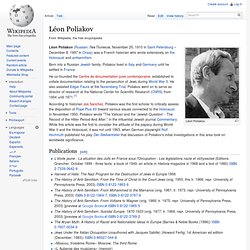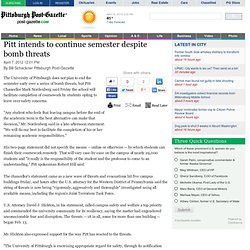

Antisemitism. Antisemitism (also spelled anti-semitism or anti-Semitism) is prejudice, hatred of, or discrimination against Jews for reasons connected to their Jewish religion or heritage.[1] A person who holds such positions is called an "antisemite".

As Jews are an ethnoreligious group, antisemitism is generally considered a form of racism. While the term's etymology might suggest that antisemitism is directed against all Semitic people, the term was coined in the late 19th century in Germany as a more scientific-sounding term for Judenhass ("Jew-hatred"),[2] and that has been its normal use since then.[3] For the purposes of a 2005 U.S. governmental report, antisemitism was considered "hatred toward Jews—individually and as a group—that can be attributed to the Jewish religion and/or ethnicity. "[4] Xenophobia and usage Usage Despite the use of the prefix anti-, the terms "Semitic" and "antisemitic" are not directly opposed to each other, making the term a misnomer. Etymology Definition Forms. Léon Poliakov. Léon Poliakov.

Léon Poliakov (Russian: Лев Поляков; November 25, 1910 in Saint Petersburg – December 8, 1997 in Orsay) was a French historian who wrote extensively on the Holocaust and antisemitism. Born into a Russian Jewish family, Poliakov lived in Italy and Germany until he settled in France. He co-founded the Centre de documentation juive contemporaine, established to collate documentation relating to the persecution of Jews during World War II. He also assisted Edgar Faure at the Nuremberg Trial. Poliakov went on to serve as director of research at the National Center for Scientific Research (CNRS) from 1954 until 1971.[1] Publications[edit] References[edit] See also[edit] Schneour Zalman Schneersohn.
The Golden Bough: A Study in Magic and Religion: A New Abridgement from the Second and Third Editions (Oxford World's Classics) (9780199538829): Sir James George Frazer, Robert Fraser. Pitt bomb threats. Pitt intends to continue semester despite bomb threats. The University of Pittsburgh does not plan to end the semester early over a series of bomb threats, but Pitt Chancellor Mark Nordenberg said Friday the school will facilitate completion of coursework by students opting to leave over safety concerns.

"Any student who feels that leaving campus before the end of the academic term is the best alternative can make that decision," Mr. Nordenberg said in a late-afternoon statement. "We will do our best to facilitate the completion of his or her remaining academic responsibilities. " His two-page statement did not specify the means -- online or otherwise -- by which students can finish their coursework remotely.
That will vary case-by-case on the campus of nearly 29,000 students and "it really is the responsibility of the student and the professor to come to an understanding," Pitt spokesman Robert Hill said. U.S. Mr. Agencies on the terrorism task force include the federal Immigration and Customs Enforcement, Internal Revenue Service, U.S. Mr. Experts Profile Pitt Bomb Threat Maker. Get Breaking News First Receive News, Politics, and Entertainment Headlines Each Morning.

Sign Up PITTSBURGH (KDKA) — What is the profile of the person or people who’ve been behind the bomb threats at Pitt? Without a suspect in custody, everything experts think is merely speculation, but there are some common theories. The inconvenience, the fear and the disgust of recent days is bad enough. First among the theories of a number of experts is that the threat maker is a male who enjoys the power of knowing that both law enforcement, the media and students have to be mobilized every time a threat is made. Startup Company Marketing. Evolution of a startup company[edit] Startup companies can come in all forms and sizes. A critical task in setting up a business is to conduct research in order to validate, assess and develop the ideas or business concepts in addition to opportunities to establish further and deeper understanding on the ideas or business concepts as well as their commercial potential.
Business models for startups are generally found via a bottom-up or top-down approach. A company may cease to be a startup as it passes various milestones,[2] such as becoming publicly traded in an IPO, or ceasing to exist as an independent entity via a merger or acquisition. Companies may also fail and cease to operate altogether.
Investors are generally most attracted to those new companies distinguished by their risk/reward profile and scalability. Startup Financing Cycle Startup business partnering[edit] Startup culture[edit] Co-founders[edit] There is no formal, legal definition of what makes somebody a co-founder. Crossing the chasm: marketing and selling high-tech products to mainstream ... - Geoffrey A. Moore. Guerrilla marketing.